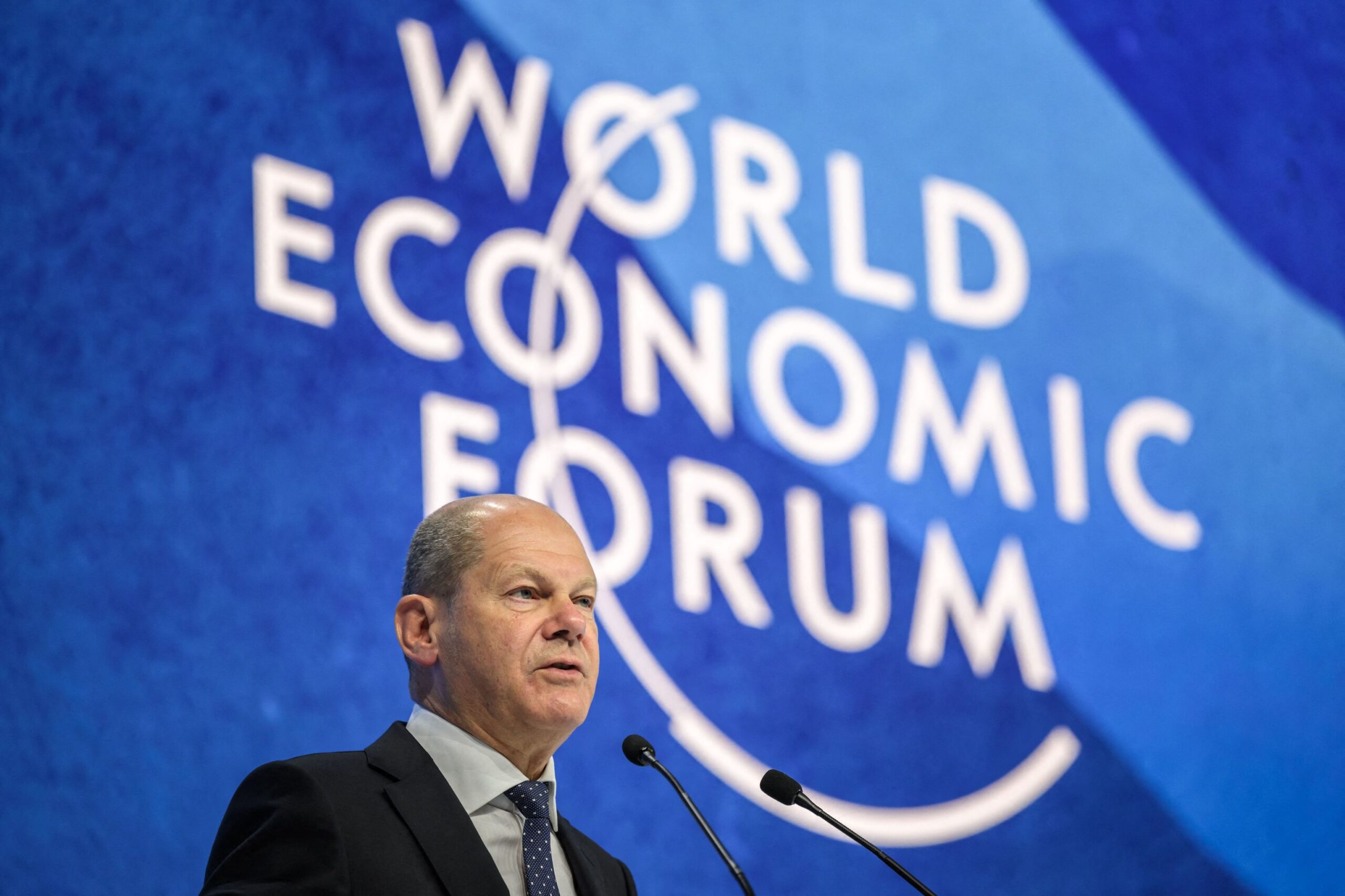“It’s a horror that we can’t ignore. We can’t turn off the television.” With this expression, the German chancellor, Olaf Scholz, has confirmed two realities: the first, that Germany (like the rest of the EU and NATO) sees the war in Ukraine from a distance; and the second, that this does not mean that she is indifferent and that she is willing to take unthinkable economic measures to stop Russia.
In a long-awaited speech on the final day of the World Economic Forum’s annual meeting in Davos, the German chancellor proclaimed that “Putin will not win this war” and that he was “convinced” of that. And he has listed that, to do so, he is even willing to revive “coal” as a source of energy, despite the fact that it has been historically repudiated by his key coalition partners: the Greens. The Social Democrat has mentioned that there will be a “decision on coal in the fall” in reference to his willingness to reactivate plants that he has in reserve to compensate for the loss of Russian gas, essential until now for Germany’s energy consumption. He has also stressed that he will unapologetically resort to liquefied natural gas “and other alternatives” for a goal that “no one should have any doubts about”: “Germany and the EU will end their dependence on energy from Russia.” He has also reaffirmed his commitment to increase defense spending by 100 billion. “The allies can count on Germany.”
What he has omitted is whether he supports Ukraine’s President Volodymyr Zelensky’s desperate request from previous days, before the same Davos auditorium, that he be given more heavy weapons. Scholz stressed: “We are not doing anything that could lead NATO to war. Because that would mean a direct confrontation between nuclear powers.”
However, it presents Putin as an increasingly weak leader: “He has already lost his strategic goals.” And he considers that “an invasion of all Ukraine seems more remote today than at the beginning of the offensive.” He has valued the “impressive” Ukrainian defense, betting that it will be possible to “make Putin understand that he will not be able to dictate peace. Ukraine will not accept it, and neither will we.” The only way out he sees is to keep the pulse: “I am clear that Putin will only seriously negotiate peace if he realizes that he cannot break Ukraine’s resistance.”
In economic matters, he has defended globalization, although he will have to correct inequalities, as he has warned, but he sees no alternative. “Deglobalization will not work,” said the leader of the world’s third largest exporting power in response to the increasingly protectionist and autarkic temptations in the world. He has also pointed out that any return to coal or liquefied natural gas has only temporary purposes, because he reaffirms his commitment to “electrification” and the “acceleration of renewable energies”.
Conforms to The Trust Project criteria
















